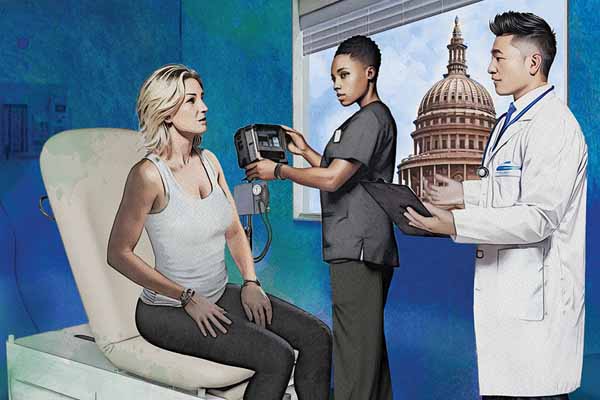
As the U.S. Preventive Services Task Force (USPSTF) reaffirms its 2018 recommendation for early, universal screening for syphilis infection during pregnancy, Texas eclipses that standard with testing requirements that aim to quell a nearly decade-long rise of congenital syphilis.
In 2023, the most recent year to have complete data, the Texas Department of State Health Services (DSHS) logged 930 cases of congenital syphilis. The state’s current rate of 238.6 cases per 100,000 births is more than double the national rate, the agency says.
The syphilis testing checkpoints Texas mandates for pregnant patients – at the first prenatal visit; again in the third trimester, not before 28 weeks’ gestation; and at delivery – dovetail with and in some ways exceed the metrics that USPSTF’s renewed recommendation outlines. As in 2018, the national task force assigned its recommendation an A rating, signifying its most strongly recommended guidance.
Per the Centers for Disease Control and Prevention, Texas is one of six states that require three screening checkpoints. The American College of Obstetricians and Gynecologists also recommends screening for syphilis at three points in pregnancy.
“Ideally it shouldn’t change anything that we are doing in Texas,” said Emily Adhikari, MD, a Dallas obstetrician-gynecologist and maternal-fetal medicine specialist who chairs Texas Medical Association’s Committee on Infectious Diseases.
Patients who are not screened early in pregnancy should be screened at the first available opportunity, the guidance directs. The recommendation applies to all adolescents and adults who are pregnant.
Dr. Adhikari notes the difference between screening – a tool to detect clinically asymptomatic or otherwise undetected infection – and diagnostic evaluation for patients who present with new symptoms, regardless of gestation time.
For example, the condition in Texas’ third trimester requirement to screen for syphilis no earlier than 28 weeks, “does not apply to someone who shows up in the office with a new rash or something consistent or concerning for syphilis who presented at 26 weeks,” she said. “That patient still needs to be screened for syphilis or diagnosed if she is suspected to have it.”
The state’s 930 cases of congenital syphilis in 2023 represent a 1% increase over the 922 cases logged in 2022, one of the smallest year-over-year increases the state has seen in some time, says Amy Carter, DSHS congenital syphilis coordinator.
“It is still a pretty big number,” Ms. Carter said of the most recent case count. Although “we’re starting to see a flattening out, with rates across the state [still] so high, we really should be considering all Texas pregnant women to be at risk.”
A layered approach
The state is working to capitalize on that flattening, eschewing risk-based screening in favor of universal screening throughout pregnancy and following a congenital syphilis operations plan, which brings together divisions across DSHS and community health partners to collaborate in addressing the disease.
Among the plan’s offerings is a new state-specific CME, “Congenital Syphilis Prevention: Screening, Diagnosis, and Treatment for Pregnant Women in Texas,” available through DSHS’ TRAIN Texas learning management system and worth 1.25 AMA PRA Category 1 Credits™.
The state also coordinates fetal infant morbidity review teams in Dallas, Houston, and San Antonio, which meet quarterly to review deidentified case summaries of congenital syphilis and perinatal HIV. At the meetings, the teams seek to identify barriers to care or missed opportunities for disease intervention and gauge the effectiveness of local education initiatives.
The local meetings are open for physicians to register to attend, as is a statewide, twice-annual meeting that can be attended online or in person in Austin.
Dr. Adhikari sits on the core review committee for the Dallas fetal infant morbidity review board, a position she’s held since 2020. To maximize the boards’ effectiveness, Dr. Adhikari said, “there is always a need for additional attendance.”
The next statewide fetal infant morbidity review meeting will take place June 26, from 1 to 5 pm, with registration available here. The online option is meant in part to encourage physician attendance and to allow them to pop in and out as their schedule permits, Ms. Carter says.
“These meetings are incredibly important,” Dr. Adhikari said, especially given that “many times clinical physicians and providers may have very limited interaction directly with the health department, or it seems to be sort of an abstract concept or a phone number.”
The fetal infant morbidity review meetings “provide an opportunity to not just educate public health on the clinical consequences of congenital syphilis but educate clinicians on how to interact with public health and why what they do is so key and critical,” Dr. Adhikari said.
Find more resources on TMA’s infectious diseases webpage.